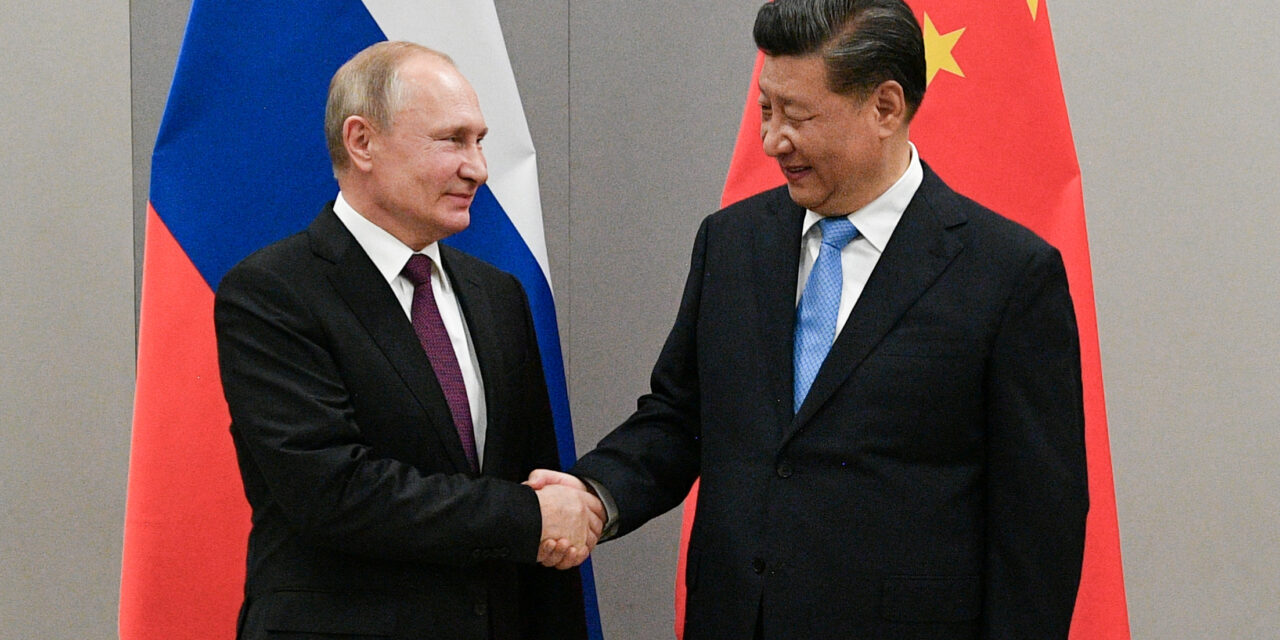In the New York Times, Chris Buckley and Keith Bradsher discuss the implications for China of the war in Ukraine. In their view, China has not internalized the shift in European opinion.
“Communication on the Chinese side appears stuck to an E.U. that no longer exists,” said Francesca Ghiretti, an analyst on European-Chinese relations at the Mercator Institute for China Studies in Berlin.
“China seems unable to grasp that the more assertive positioning that the E.U. has been developing is not the result of U.S. pressure,” she said. “Now the E.U. and China’s differences are on core issues. The response to Ukraine being a case in point.”
Europe was the main beneficiary of the Cold War. In the West, free from totalitarian control or the need to invest heavily in defense, countries were free to develop economically and socially in sustained peaceful conditions. The East didn’t have quite the same good fortune, but they still were well positioned to benefit once out of the yoke of Soviet repression. The East emerged from the Cold War less complacent about defense than the West, but still eager to take NATO’s blanket protection rather than make the kinds of investments that might protect them alone against Russian aggression. The United States took on the main burden of being martial in character, leaving Europe to devote itself to more elevated endeavors.
China saw this for the weakness that it was and crafted its foreign and economic relations with Europe accordingly. But now Europe sees China differently, and as much more of a threat on every level. And now they are not so much looking to America for increased protection as they’re committing to protecting themselves.
As an American who jealously watched Western Europe develop its social democracies and wondered why we, too, couldn’t have nice things, I greet this new world with mixed feelings. I wanted America to become more like Europe rather than see Europe become more like us. But I also resented how we had to take on so much responsibility and do so much investment in defense, along with all the stains it put on our country and our credibility on human rights, all because Europe was content to be our protectorate. For a long time, I have wanted Europe to drop their air of moral superiority and invest their fair share in defense and peacekeeping capabilities.
Obviously, I’d prefer the flawed status quo ante to the state of war we’re in now, but I recognize that there are some positives that will come for this, assuming enough of us survive to enjoy them. These positives are negatives for China. They now face a reinvigorated and more unified West, and a more assertive Europe.
Everything was going China’s way before Putin’s invasion of Ukraine. Things were going Putin’s way, too, as the West was splintering and increasingly coming under his sway. His preparations for the invasion of Ukraine were excellent, especially his work on Brexit and America’s 2016 presidential election, as well as the inroads he was making in the politics of Italy and Hungary. He succeeded in making Europe heavily dependent on Russian energy, and did excellent preparatory work in this respect with Germany, the most important and powerful country in the West. But he still miscalculated that this work would be sufficient to get acquiescence for his annexation of Ukraine. All his work went up in smoke in an instant, and along with it China’s bet on Russia.
I am sorrowful about what is happening and very worried about where things are headed, but I’m glad people’s eyes are open now. Totalitarianism is the main threat, and its been making a big comeback. The Soviet Union collapsed, but China’s government persisted and grew more powerful. I hope the tide is now turning, and that’s what keeps me going.




That hope is about all I have keeping me going. The only thing that seems to save us is when the bad guys get greedy and step so far over the line that a counter-reaction is inevitable. We’re approaching some kind of perfect storm of absurd tipping points…
I’m so glad you are still on top of your game, and not succumbing to the existential dread we all feel; it’s important to see where the light is to direct it into the shadows. I’ve subscribed here for a few years but haven’t consistently read you and Nancy since you left PA. I’m spirited at ’76 (get it 🙂 ) and yeah, my granddaughters are going to be living in a really shitty world, but maybe for not as long as we fear. I need to drop in more often, see how Finn’s chess and soccer game progresses more closely. Thanks.